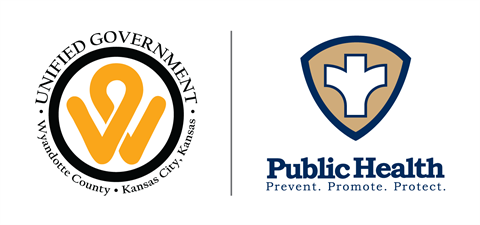COVID-19 Vigilance Encouraged as Federal Declaration Ends
Published on May 11, 2023

Press Release Published and Provided jointly from the Mid-America Regional Council (MARC) region health departments regarding the COVID-19 Public Health Emergency.
The region’s public health directors are reminding Kansas City area residents to continue slowing the spread of COVID-19 as the federal public health emergency declaration ends this month.
The COVID-19 public health emergency declaration ended on May 11. The declaration allowed the government to quickly respond to the COVID-19 pandemic while addressing financial barriers related to care.
“Today, we find ourselves at a different point in the pandemic – with more tools and resources than ever before to better protect ourselves and our loved ones. But that doesn’t mean the pandemic is over. The virus is still present in our communities,” said Dr. Marvia Jones, director of the Kansas City, Missouri, Health Department. “Thankfully, we know how to slow the spread: get vaccinated and boosted when eligible, wear a mask, stay away from crowds, wash hands frequently and stay home if sick.”
According to the Centers for Disease Control and Prevention, the impacts from the end of the declaration will include:
- Vaccines: COVID-19 vaccines will remain available. Once the federal supply of vaccines is depleted, vaccines will continue to be available and free for most people with private and public insurance. Contact your health care provider, pharmacy or public health department to determine your eligibility for a vaccine.
- Tests: Both at-home and PCR tests will remain available but cost may vary. Insurance providers will no longer be required to waive costs or provide free COVID-19 tests. Free tests may be available at local clinics or community health centers.
- You can order four free tests from the federal government to be mailed to your house. To order, visit www.covid.gov/tests.
- Treatment: Medication to treat COVID-19 will remain free while federal supplies last.
The Kansas City Region COVID-19 Data Hub will also sunset this month. The hub launched in March 2020 to display a variety of data related to the pandemic in the region. It will no longer be updated after May 11. National, state and local public health agencies will continue to monitor COVID, and data will still be posted on the CDC’s COVID Data Tracker. With the end of the public health emergency, some metrics will remain the same, while others will change in frequency, source or availability.
“The region’s public health departments continue to monitor COVID-19 and other communicable diseases to keep our communities safe,” said Charlie Hunt, director of the Johnson County Department of Health and Environment. “Thanks to vaccines and authorized medications, we can do more today than we could three years ago to reduce the risk of COVID-19, but people are still getting sick in our region. It’s important that everyone takes steps to prevent COVID-19 and, should you become infected, quickly access treatment options.”
Local public health departments will share information on PrepareMetroKC.org, the region’s emergency preparedness website, and their individual websites should COVID-19 conditions change in the region.
Kansas City residents can visit PrepareMetroKC.org to view information about how to reduce their risk in disasters and emergencies, including COVID-19.
##